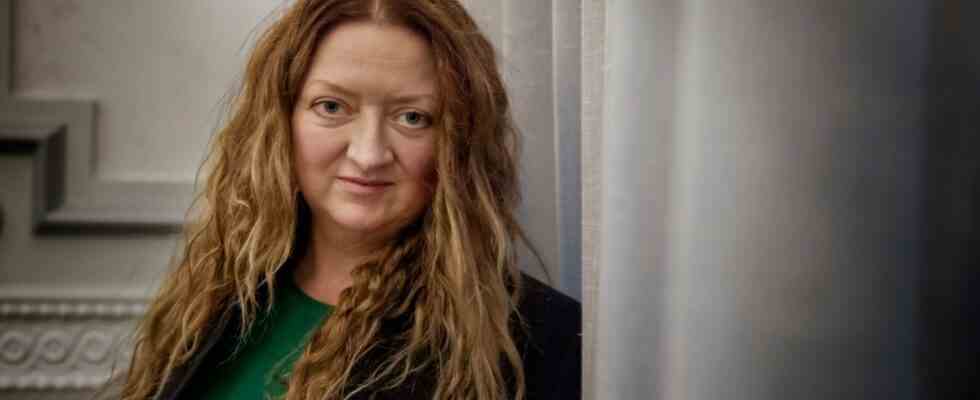The wind blows across the wintry land. The chimneys emit plumes of smoke. In the small town of New Ross, people trudge through the cold on their way to work. It’s just before Christmas, people are baking and brewing in the city, gifts are being bought, the lights are shining, but “it was December of the crows. You’d never seen so many before. They gathered in black swarms in front of the city, then rushed in to the center, hopped through the streets”.
Claire Keegan’s remarkable novel, beautifully written by Steidl Verlag, reflects a country’s depraved situation in the gloom of nature. Although the association is obvious and Claire Keegan deliberately arouses it in allusions, we are not in Charles Dickens’ world of the 19th century, but in economically and, as it will turn out, also morally run down Ireland in 1985. Fleeing in droves the young people left the country for America due to a lack of prospects.
Claire Keegan: Little things like this. Translated from the English by Hans-Christian Oeser. Steidl Verlag, Göttingen 2022. 110 pages, 18 euros.
Claire Keegan, born in 1968 and celebrated in English-speaking countries for her novel “The Third Light”, published in 2013, stages all these accompanying circumstances almost casually. Although the center of “Little Things Like These” is a solid scandal that has been kept secret for decades, Claire Keegan finds a subtle and elegant way to make both the mechanisms of repression and an inner process of knowledge visible in a small space. Both take place in the main character Bill Furlong, the coal and fuel dealer from New Ross.
Furlong is an upright man, raised without a father, who just barely supports his family of six and occasionally allows himself to dream of a different life. One day, during one of his coal deliveries in the monastery above New Ross, he tracks down a neglected young girl who asks him for help. Shortly thereafter, the nuns are there and rectify the situation, but from now on Bill’s thoughts revolve around what he saw.
And above all because he didn’t want to know something that he could have known a long time ago: In the so-called Magdalenen laundries, operated by the Catholic Church, from the late 1820s until 1996, it’s hard to imagine Imagine “fallen girls” – prostitutes or single pregnant girls – held captive and forced to work. The newborn children were taken away from them. The working conditions were inhuman. How many women died there over the decades is still a mystery.
One of the establishments known as “Magdalene Laundries” was housed in this house in Newry, Northern Ireland.
(Photo: Niall Carson/picture alliance / empics)
Claire Keegan explains the history of the laundries in a brief afterword. Her novel works out the chain of concealment mechanisms and dependencies that the oppressive system in the laundries made possible in the first place. Yes, there have been rumors about the girls, but Bill Furlong never believed them or didn’t want to believe them. Moreover, how could he, even if he wanted to, oppose the powerful Catholic Church and jeopardize the future of his daughters, whom he wants to enroll in the Catholic girls’ boarding school?
Claire Keegan doesn’t need big words to convey her protagonist’s torn nature. She is a highly talented scarcer whose characters walk on thin ice, between actual innocence and perfected ignorance. Ultimately, Little Things Like This is an optimistic book, as Bill Furlong himself begins to realize that he has an obligation to break his silence now that he’s seen what’s going on with his own eyes.
They are short, casual sentences in which Keegan inscribes the higher moral law in her main character: It takes, it says, “a stranger to bring things to light”. And at the very end, Bill thinks the worst that could have happened is already behind him: “that which wasn’t done”. Dickens’ “A Christmas Carol” was a constant comfort to Bill’s childhood. Claire Keegan transported the Christmas fairy tale into the next century. Open end.

